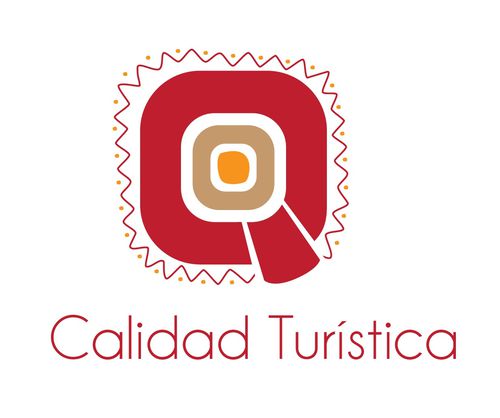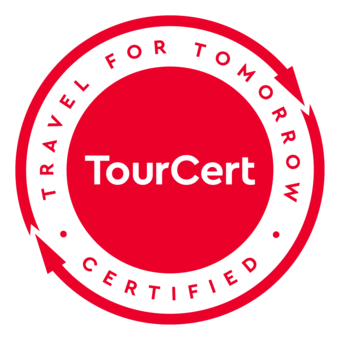Esta página también está disponible en:
 Español
Español
CODE OF CONDUCT FOR THE PASSENGER
Value local traditions and customs
- Learn about the local customs and traditions of the tourist destination you will be visiting (holidays, holidays among others) so you can share, participate and integrate with the community in a better way.
- Learn a few words in the native language to establish a more meaningful contact with the local community.
- Respect and protect everything that makes a destination a unique and different place: from its history, its architecture and its cultural, natural and own values such as: spirituality, music, art, cuisine, among others. For example, ask for permission to take photographs and find out about sale ethics, tipping, donations and gifts
Support the Local Economy
- Buy products that do not require the use of endangered plants or animals for their preparation.
- Prefer group outings that allow savings of resources, money, fuel and a decrease in your carbon footprint. Find the most efficient and least polluting way to move.
- Reduce, Reuse and Recycle solid waste during your trip. Bring your own water bottle to refill, avoid buying products with unnecessary wrappers and packaging, and do not accept plastic bags to receive purchases of products that you can transport in another medium.
- Reduce your consumption of water and electricity in the tourist accommodation establishments you visit (ask to use your towels and sheets for more than one day and when leaving a room remember to turn off lights, heating and air conditioning).
Respect the Environment
- Buy products that do not require the use of plants or animals in danger of extinction.
- Prefer group outings that allow savings of resources, money, fuel and a decrease in your carbon footprint. Look for the most efficient and least polluting way to travel.
- Reduce, Reuse and Recycle solid waste during your trip. Bring your own bottle of water to refill, avoid buying products with unnecessary packaging and packaging, and do not accept plastic bags to receive product purchases that you can transport in another medium.
- Reduce your consumption of water and electricity (ask to use your towels and sheets for more than one day and when you leave a room remember to turn off lights, heating and air conditioning).
Take Care of the Cultural and Natural Heritage
- Be careful when visiting wild, heritage, archaeological or other areas that seem fragile and/or valuable to you.
- Try to return the garbage generated during your visit to these areas (including organic waste), otherwise it could alter the food diet of the native wildlife, dirty the landscape and affect the rest of the visitors.
- Choose routes that cause the least impact on the landscape, preferring existing roads and trails. Prefer guided tours, thus avoiding accidents and decreasing soil erosion and compaction in protected areas, while strengthening local work.
- Do not incur in environmental crimes. If you visit a protected area remember that there is a regulation and that it was created to preserve places and species of great ecological value and often in danger of extinction.
- Do not feed the wildlife.
- Do not let other people’s and off-leash dogs follow you when you are walking on the street or on footpaths. Dogs can chase wild animals causing damage to the ecosystem. Alert the staff of the establishments to help you control these pets. This will allow a safer visit for you, your family and the environment.
- Respect the signage and indications of existing communities in the area you are visiting. This will allow a safer visit for you, your family and the environment.
- Do not remove natural resources, for example stones, fossils, snails, plants, flowers or others, from their original environment.
- Contribute to the maintenance of the infrastructure and equipment present in the protected areas by paying the requested fee and using the facilities properly.
Be an informed and respectful traveler
- Comply with local and national laws and regulations.
- Respect human rights and protect children from exploitation in any of its forms, especially sexual and labor.
- Find out how you can get medical assistance or contact your embassy (for foreign tourists) in case of emergency.
- Tourists and visitors have the responsibility to gather information from before their departure, about the characteristics of the country they are going to visit. They shall also be aware of the health and safety risks inherent in all movement in and out of their usual environment, and shall behave in such a way as to minimize those risks..
- Find out about the weather and be prepared with appropriate clothing and equipment.
- Be discreet when expressing your personal point of view about your beliefs and other cultural issues.
- Refrain from any kind of trafficking in drugs, weapons, antiques, protected species and dangerous products and substances or prohibited by national regulations.
- Find out at the tourist information offices that have official public or private institutional support, in order to obtain objective, up-to-date information and tourist services and activities that comply with the legal provisions of the places of visit.







